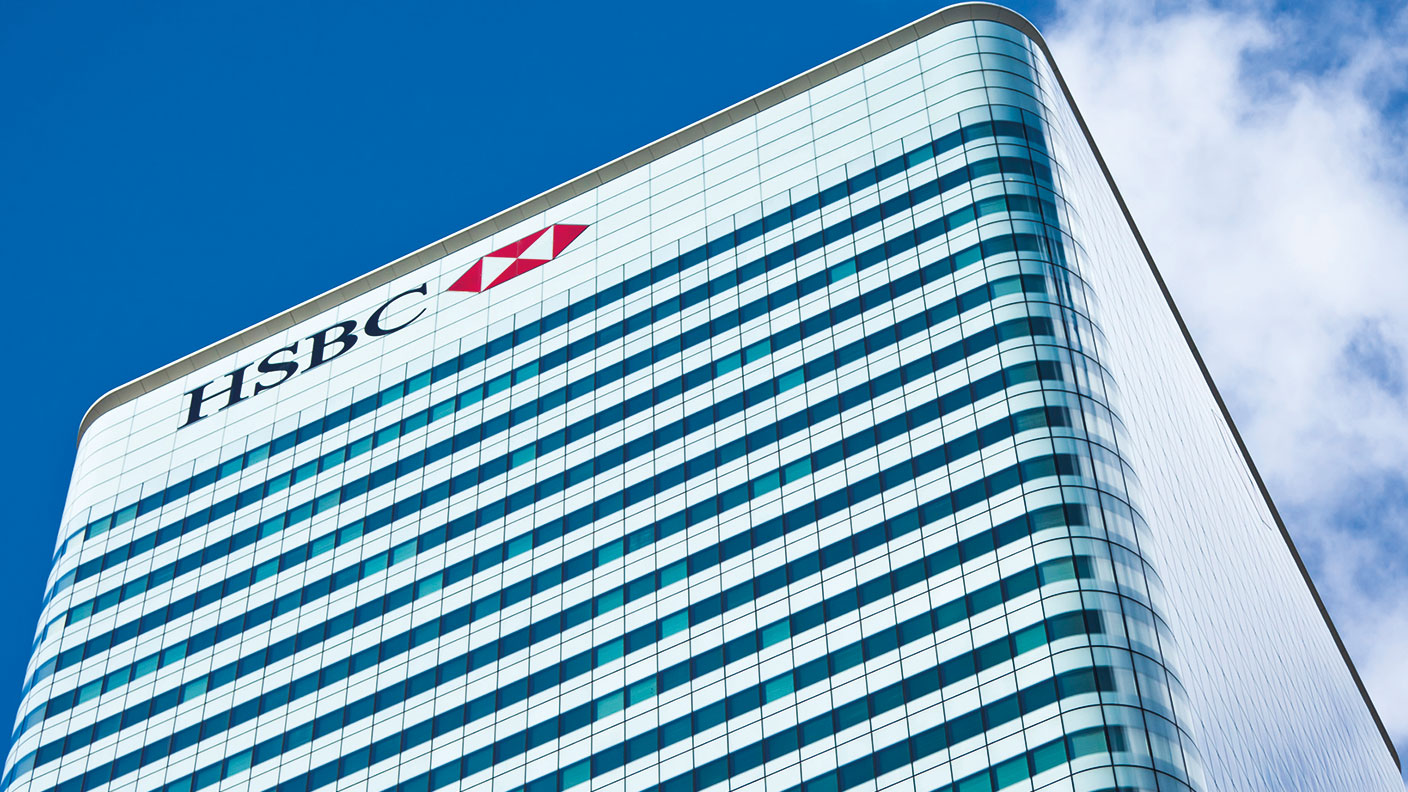Will HSBC be torn apart?
Banking giant HSBC has pleased the market with a new dividend policy. But its top shareholder thinks it should be split in two. Matthew Partridge reports.


Get the latest financial news, insights and expert analysis from our award-winning MoneyWeek team, to help you understand what really matters when it comes to your finances.
You are now subscribed
Your newsletter sign-up was successful
Want to add more newsletters?

Twice daily
MoneyWeek
Get the latest financial news, insights and expert analysis from our award-winning MoneyWeek team, to help you understand what really matters when it comes to your finances.

Four times a week
Look After My Bills
Sign up to our free money-saving newsletter, filled with the latest news and expert advice to help you find the best tips and deals for managing your bills. Start saving today!
HSBC’s shares jumped by 7% on Monday as the bank promised to boost dividends and start paying them on a quarterly basis again from the start of next year, says Kalyeena Makortoff in The Guardian. Pre-tax profit reached just $9.2bn in the first half of the year, compared with $10.8bn in the same period last year; sales were flat at $25.2bn. But shareholders will be in line for an interim cash dividend of nine cents a share. The move comes as HSBC’s top shareholder – the Chinese insurer Ping An – “revived calls to separate the bank’s profitable Asian business from the rest of the lender’s operations”.
The new dividend policy will be welcomed by “disaffected retail shareholders”, who own a third of HSBC’s shares, say Tabby Kinder and Stephen Morris in the Financial Times. Such shareholders were “enraged” by the Bank of England’s decision to prevent UK lenders from paying dividends during the pandemic and by HSBC’s decision to pay out at just half the previous rate after the ban was lifted in July 2021. Indeed, HSBC’s dividend policy was so unpopular that Ping An has put it at the centre of its argument for a break-up.
Higher interest rates boost profits
Ping An picked a “bad moment” to agitate for a breakup from a financial viewpoint, says Jennifer Hughes on Breakingviews. Thanks to rising borrowing costs, HSBC’s net income is set to total $37bn next year, one-sixth higher than this year, while its shares have risen by 37% in a year: it is one of the top-performing “global banking titans”. Meanwhile, a break-up could come with a lot of risks, including “higher taxes and capital charges”. It could even “[jeopardise] the bank’s licences to clear US dollar transactions”. What’s more, HSBC benefits from its 63-country network: “Nearly half the bank’s business with wholesale clients crosses a border, for example.”
MoneyWeek
Subscribe to MoneyWeek today and get your first six magazine issues absolutely FREE

Sign up to Money Morning
Don't miss the latest investment and personal finances news, market analysis, plus money-saving tips with our free twice-daily newsletter
Don't miss the latest investment and personal finances news, market analysis, plus money-saving tips with our free twice-daily newsletter
HSBC’s new dividend policy, along with its optimistic profit projections, might “placate [most] shareholders in the short-term”, says Ben Marlow in The Daily Telegraph. But it “won’t improve the political backdrop”. Ping An is not like other “shareholder activists”. The group is technically not state-controlled, but it is generally acknowledged that “nothing of consequence happens in China without... the green light from Beijing”. The state is likely to be “agitating in the shadows” for a break-up “as relations with the West become more tense”.
HSBC “has been navigating tricky international waters with aplomb since it was founded in 1865”, says Ruth Sunderland on This is Money. But it’s becoming increasingly clear that its unique position with “substantial operations” in Asia and the West means that it is “at risk of upsetting either China or the US, or both”.
HSBC has been lambasted in the West for its involvement with firms linked to the Chinese repression of the Uyghurs, as well as its refusal to “take a principled stance over Ukraine” by pulling out of Russia. The upshot is that the UK banking authorities “would be prudent to insist it takes steps to protect the British taxpayer in the event of a break-up, just in case”.
Get the latest financial news, insights and expert analysis from our award-winning MoneyWeek team, to help you understand what really matters when it comes to your finances.

-
 Should you buy an active ETF?
Should you buy an active ETF?ETFs are often mischaracterised as passive products, but they can be a convenient way to add active management to your portfolio
-
 Power up your pension before 5 April – easy ways to save before the tax year end
Power up your pension before 5 April – easy ways to save before the tax year endWith the end of the tax year looming, pension savers currently have a window to review and maximise what’s going into their retirement funds – we look at how
-
 HSBC stocks jump – is its cost-cutting plan already paying off?
HSBC stocks jump – is its cost-cutting plan already paying off?HSBC's reorganisation has left questions unanswered, but otherwise the banking sector is in robust health
-
 HSBC returns to cost-cutting plan
HSBC returns to cost-cutting planHSBC is set to revamp its commercial banking division – but will it come at a cost?
-
 Halifax: House price slump continues as prices slide for the sixth consecutive month
Halifax: House price slump continues as prices slide for the sixth consecutive monthUK house prices fell again in September as buyers returned, but the slowdown was not as fast as anticipated, latest Halifax data shows. Where are house prices falling the most?
-
 Rents hit a record high - but is the opportunity for buy-to-let investors still strong?
Rents hit a record high - but is the opportunity for buy-to-let investors still strong?UK rent prices have hit a record high with the average hitting over £1,200 a month says Rightmove. Are there still opportunities in buy-to-let?
-
 Pension savers turn to gold investments
Pension savers turn to gold investmentsInvestors are racing to buy gold to protect their pensions from a stock market correction and high inflation, experts say
-
 Where to find the best returns from student accommodation
Where to find the best returns from student accommodationStudent accommodation can be a lucrative investment if you know where to look.
-
 The top stocks and funds to buy according to DIY investors
The top stocks and funds to buy according to DIY investorsNvidia dropped out of Interactive Investor’s top ten most-bought stocks in January for the first time in six months as investors veered away from US megacaps
-
 The world’s best bargain stocks
The world’s best bargain stocksSearching for bargain stocks with Alec Cutler of the Orbis Global Balanced Fund, who tells Andrew Van Sickle which sectors are being overlooked.